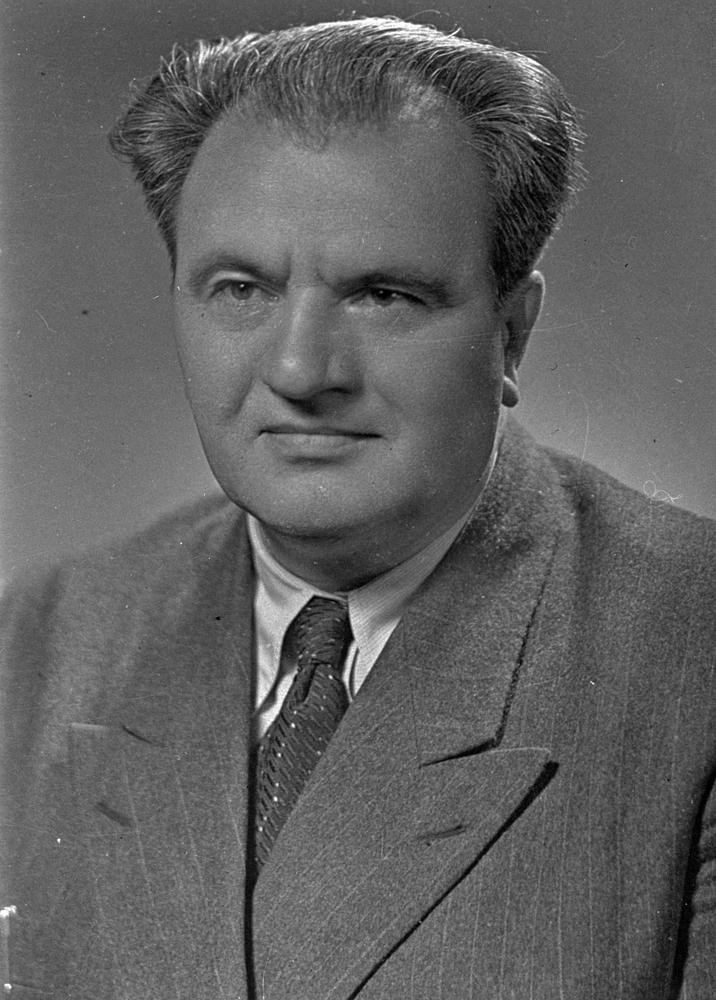site.btaOctober 21, 1949: Bulgaria's 6th Grand National Assembly Ends


On October 21, 1949, the Sixth Grand National Assembly (GNA) of Bulgaria closed its last session. Convened three years earlier, it had transformed the Bulgarian political system and consolidated the control of the Bulgarian Communist Party (BCP).
The Sixth GNA was elected after Bulgaria was proclaimed a people's republic on September 15, 1946 as a result of a referendum held on September 8, 1946. The referendum itself was contrary to the Tarnovo Constitution, which did not permit a change of the form of government by popular vote. Still, the Sixth GNA had a more significant raison d'être: the Bulgarian Communist Party wanted to transform the state system and consolidate its own hold on power. Such a major change required the repeal of the Tarnovo Constitution and the drafting and adoption of a new one. This could only be achieved by convening a grand national assembly.
The Sixth GNA was elected with an unprecedented 92% voter turnout. These were also the first elections in which the voting age was lowered from 21 to 18 and in which women were granted the right to be elected to parliament. The Bulgarian Communist Party and their Fatherland Front allies swept the elections, winning 366 out of 465 seats, which gave them a comfortable majority. The assembly drafted and on December 4, 1947 approved a new Bulgarian constitution, named the "Dimitrov" Constitution after BCP leader Georgi Dimitrov, which was modeled after the 1936 Constitution of the Soviet Union. This new basic law cemented the primacy of the BCP in the country's political and social life, enabling the seizure of private property and state control of the economy. The BCP majority in parliament also stripped many opposition party MPs of their parliamentary immunity, enabling their imprisonment. By the time the GNA ended its proceedings in 1949, Bulgaria was firmly on the path to totalitarianism and had entered one of the darkest periods in its history.
Following is the Bulgarian News Agency coverage of the last acts adopted by the Sixth Grand National Assembly:
"Sofia, October 21, 1949. Today's session of the Grand National Assembly was opened at 3:15 p.m. by its Chairman, Comrade Raiko Damyanov.
The decrees issued by the Presidium of the Grand National Assembly for the period from September 18 to October 20, 1949 were approved. Subsequently, in accordance with the provisions of the Constitution, a bill on trying members of the government was debated. According to Article 45 of the Constitution of the People's Republic of Bulgaria, 'the members of the Government are penally responsible for any violation of the Constitution and the laws and for any criminal offence committed in the discharge of their functions. They bear civil responsibility for damage caused by them to the State or to private citizens by their unlawful acts.' The Minister of Justice, Comrade Radi Naydenov, provided clarifications on the bill on trying members of the government, after which the latter was unanimously passed on a first and, as a matter of urgency, a second reading. Then, on a motion by Deputy Chairman of the Council of Ministers, Comrade Valko Chervenkov, the Grand National Assembly adopted, as a matter of urgency, on a second reading, a bill renaming the Ministry of Railways, Motorways, and Waterways Ministry of Transport.
In accordance with the provisions of the people's Constitution, the new Minister of Transport, Comrade Georgi Chankov, and the Chairman of the State Planning Commission, Comrade Kiril Lazarov, were sworn in. With no other business on the agenda, the Chairman, Comrade Raiko Damyanov, declared the Fourth Extraordinary Session of the Grand National Assembly closed."
"Sofia, October 22, 1949. By decree of the Presidium of the Grand National Assembly, Comrade Vladimir Topencharov has been relieved of his responsibilities as Deputy Minister of Foreign Affairs and Press Director due to his transfer to another position."
/LG/
news.modal.header
news.modal.text